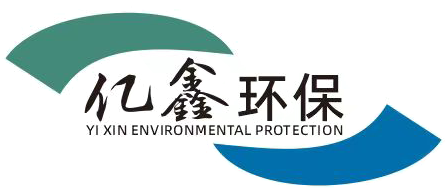21
2025
-
05
Application and Importance of Dust Removal Equipment in the Power Industry
Author:
With the continuous development of industrialization, the power industry inevitably generates a large amount of dust pollution during energy production. This dust not only harms the environment but can also damage equipment and even affect human health. Therefore, dust removal in the power industry is particularly important, and dust collectors, as effective waste gas treatment equipment, play a crucial role in the power industry.
I. Current Status of Waste Gas Pollution in the Power Industry
The power industry, especially coal-fired power plants, releases large amounts of dust, sulfur dioxide, nitrogen oxides, and other harmful gases during production. Especially during coal combustion, the coal ash after combustion is discharged into the atmosphere along with the flue gas, forming serious air pollution. In order to effectively control these pollutants, the use of dust collectors has become indispensable.
II. Working Principle of Dust Collectors
The main function of dust collectors is to remove dust and particulate matter from waste gas through physical, chemical, or electrical means to purify the discharged gas. Common types of dust collectors include bag dust collectors, electrostatic precipitators, and wet dust collectors.
Bag dust collector: Uses the filtration function of filter bags to intercept dust particles in the waste gas. Bag dust collectors are suitable for handling higher concentrations of dust and have high dust removal efficiency, widely used in the processing of coal powder, mineral powder, and other particulates.
Electrostatic precipitator: Uses electrostatic force to adsorb dust particles in the waste gas to the electrodes, thereby achieving dust removal. This method is suitable for handling fine particles, has high efficiency, and is widely used in large-scale power plants.
Wet dust collector: Adsorbs dust in the waste gas into water through water spraying or humidification, suitable for occasions with high humidity.
III. Application of Dust Collectors in the Power Industry
In the power industry, dust collectors are mainly used in the processes of flue gas desulfurization, denitrification, and dust removal, especially in coal-fired power plants, where dust collectors help reduce environmental pollution.
Application in Coal Combustion
The combustion of coal in coal-fired power plants produces a large amount of smoke dust. If this dust is directly discharged without treatment, it will cause serious environmental pollution. Dust collectors effectively remove this dust through high-efficiency filtration to meet emission standards.
Improving Equipment Service Life
Dust can cause wear and tear on power plant boilers, pipelines, fans, and other equipment, reducing their service life. Effective dust removal can reduce the corrosion and wear of these equipment, improving their reliability and service life.
Protecting Worker Health
Long-term exposure to a dusty environment can threaten workers' health, such as causing respiratory diseases. Dust collectors can effectively reduce the dust concentration in the workshop, ensuring the health and safety of workers.
IV. Challenges and Development Directions of Dust Collectors in the Power Industry
Although dust collectors are widely used in the power industry, challenges still exist. First, the operating cost of dust collectors is high, especially for bag dust collectors, where filter bag replacement and cleaning require a lot of manpower and material resources. Second, in high-concentration dust environments, the efficiency of dust collectors will decrease, requiring continuous technological optimization.
In the future, the development direction of dust collectors in the power industry will mainly be reflected in the following aspects:
Improving Dust Removal Efficiency
Research and development of more efficient dust collectors that can handle higher concentrations of dust and reduce energy consumption and maintenance costs.
Intelligent Management
Through an intelligent control system, real-time monitoring of the dust collector's operating status, automatically adjusting operating parameters, improving dust removal efficiency and equipment operating stability.
Environmental Protection and Energy Saving
The design of future dust collectors will pay more attention to environmental protection and energy saving, further reducing the impact on the environment by reducing energy consumption and waste emissions.
The application of dust collectors in the power industry can not only reduce pollution and protect the environment but also improve equipment service life and protect employee health. With technological advancements, dust removal equipment will become more efficient, intelligent, and environmentally friendly, further promoting the sustainable development of the power industry.






